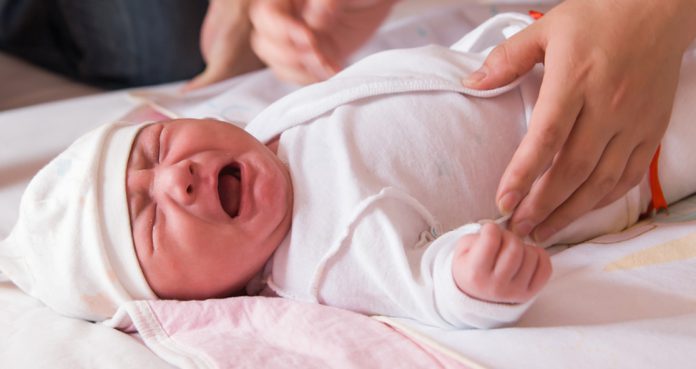According to a new study from Academic Pediatrics, parenting a fussy baby is more stressful and can cause depression than a non-fussy baby.
The study drew its conclusion from data gathered from nearly 8,200 women and their babies. It was found that there was something pretty distressing. Mothers with fussy babies, born full-term, were approximately twice as likely to have moderate to severe depression when compared with mothers with non-fussy babies.
The study also found that mothers of babies born prematurely had similar results.
The mothers of the later-born preemies were known to have twice the risk of moderate to severe depression, while mothers of very preemies had the same risk, only for mild depression.
The study was conducted by the University of Michigan ay Mott Children’s Hospital in Ann Arbor.
Senior study author Dr. Prachi Shah said, “We need to note a few things from the results of the team’s research. Namely, that doctors and pediatricians need to understand the mental health risks for parents of fussy babies. A mother who has a fussier, less-soothable infant can have lower self-confidence, feelings of lower efficacy, feeling more depressed and more stressed.”
It has been found that part of the problem arises from the crying and fussiness that have no clear causes, including gassiness or colicky. It is easy for parents to blame themselves when there is no obvious or fixed reason for their baby’s frequent fussiness, which can lead to hopelessness and depression.
Dr. Shah came to an interesting conclusion based on the findings. She noted that parents of premature babies often have a mild form of depression. The author felt that might be because parents have to take their premature babies to healthcare providers on a frequent basis. The researcher also said it is imperative crucial for physicians to take parents seriously if they come with a fussy baby.
She explained, “If a parent brings this issue to a pediatrician, I think it’s important to normalize it to a certain degree — to say many parents have infants who are fussy — but also to recognize that this is a challenge and that we should not minimize it.”
Even though the findings of the study seem completely obvious, it is a bit heartening to feel heard. It is indeed draining to take care of a baby who is barely happy.























